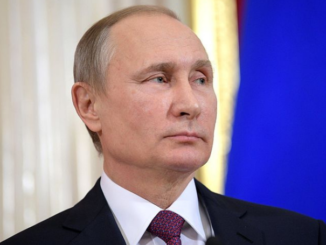
By Ramona Wadi
The International Criminal Court (ICC) is back on the scene, with more evidence that it gives Israel the benefit of the doubt. ICC Chief Prosecutor Fatou Bensouda’s statement last Sunday indicated that her office has monitored the demonstrations in Gaza which have resulted in Israel killing over 30 Palestinians and wounding more than 2,000 others.
However, Bensouda’s cautious tone was obvious:
“Violence against civilians – in a situation such as the one prevailing in Gaza – could constitute crimes under the Rome Statute of the International Criminal Court.”
Giving Israel the benefit of the doubt, she added that the preliminary examination being conducted by her office “is not an investigation” and emphasized that the ICC will “continue to closely watch the situation and will record any instance of incitement or resort to unlawful force.”
There is little doubt that the ICC, like other international institutions, is competent in recording human rights violations. This is, after all, their lifeline. What happens with the evidence is another story, though, and one that has been repeated to the point of perfection.
Besides Israel’s refusal to allow proper investigations to take place, there is also the context of the organizations themselves and their dependence upon the violation of human rights, which has created a vile cycle of abuse to the point of rendering humanity subjugated to the organizations’ bestowal of impunity upon the perpetrators.
On Monday, Likud Spokesman Eli Hazan declared on a television program that all 30,000 Palestinians demonstrating are legitimate targets for Israeli snipers on the borders. The statement is evidence of premeditated intent to murder and injure Palestinians who are within their right to reclaim their return to historic Palestine.
According to the Jerusalem Post, Israeli Defence Minister Avigdor Lieberman has also called for human rights group B’Tselem to be investigated for calling upon soldiers to disobey illegal government orders to fire on Palestinian protesters.
Like other shows of violence which put Israel under the spotlight and trigger a wave of support for Palestinians — that usually dwindles until the next planned aggression — the Great March of Return’s intent has been obscured by Israel’s appropriation of terminology to legitimize its theft of Palestinian territory. Hence, the emphasis upon “borders”, which in turn elicits rhetoric such as “both sides” in official comments; both examples are used as foundations for mainstream media
Taking such wilfully inaccurate simplifications further, there is another discrepancy which provides Israel with the impunity it needs to sustain its colonial existence and violence. The reliance upon “context” is becoming a dangerous precedent for Palestinians as the larger framework of colonialism is eliminated from the context of the violence meted out by Israel. All the ICC referred to, for example, was the “violence and deteriorating situation in the Gaza Strip.”
The Great March of Return is a direct result of the context in which Palestinians find themselves, which started with the colonization of Palestine back in 1948 and even earlier. For convenience, as well as the perpetual perpetration of human rights violations, international institutions have enshrined their preference for ignoring and obliterating the core of the context — the creation of Israel on Palestinian territory — and influenced the world to think in the same terms.
This has gone as far as a rethinking of support for Palestine, which at times fragments the struggle, with a corresponding negative effect on the ultimate aim of fulfilling the legitimate right of return. The current Israeli violence is but a part of a long colonial process which has created its own shameful history of such atrocities. That is the real context of the “violence and deteriorating situation in the Gaza Strip.” We need to challenge the ICC on this.
– Ramona Wadi is a staff writer for Middle East Monitor, where this article was originally published. She contributed this article to PalestineChronicle.com.








The ICC needs only to see the videos published in Facebook.